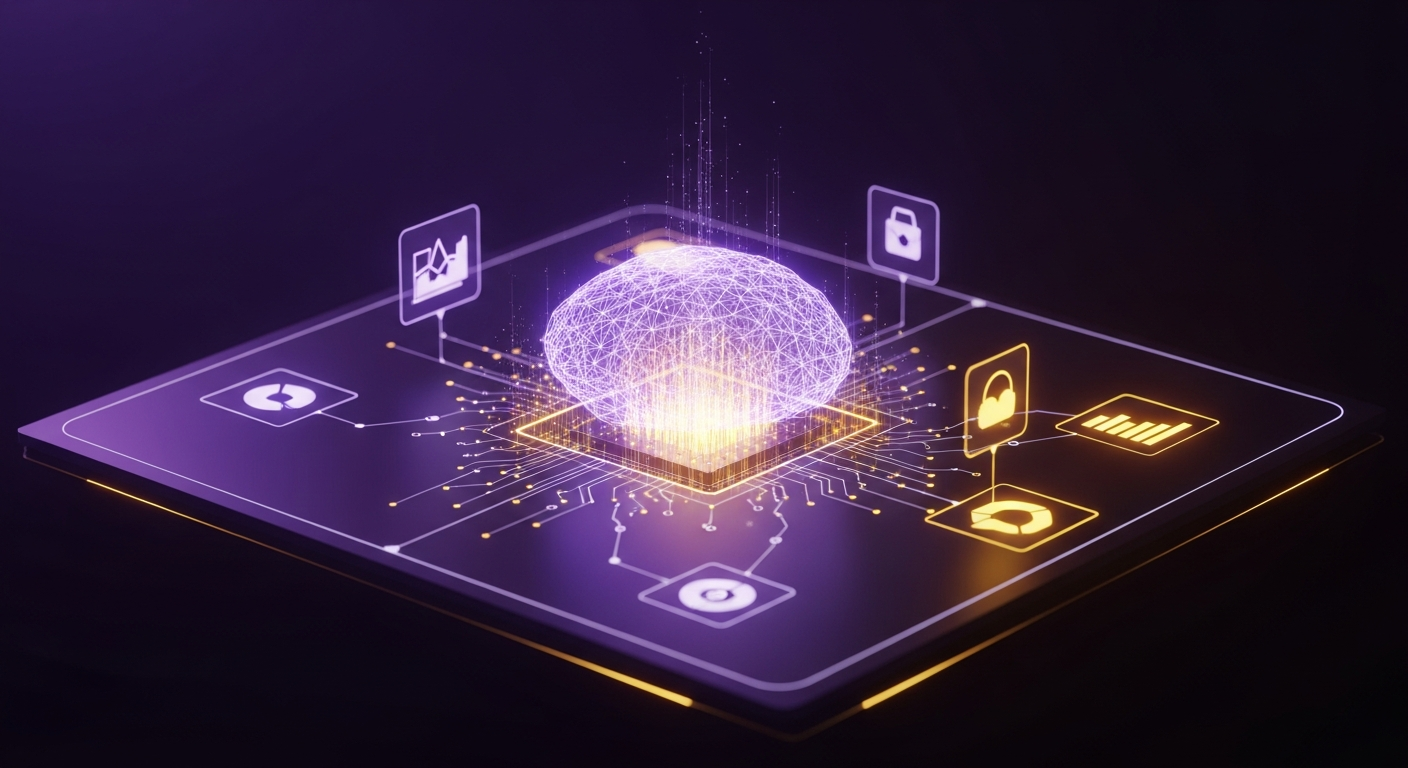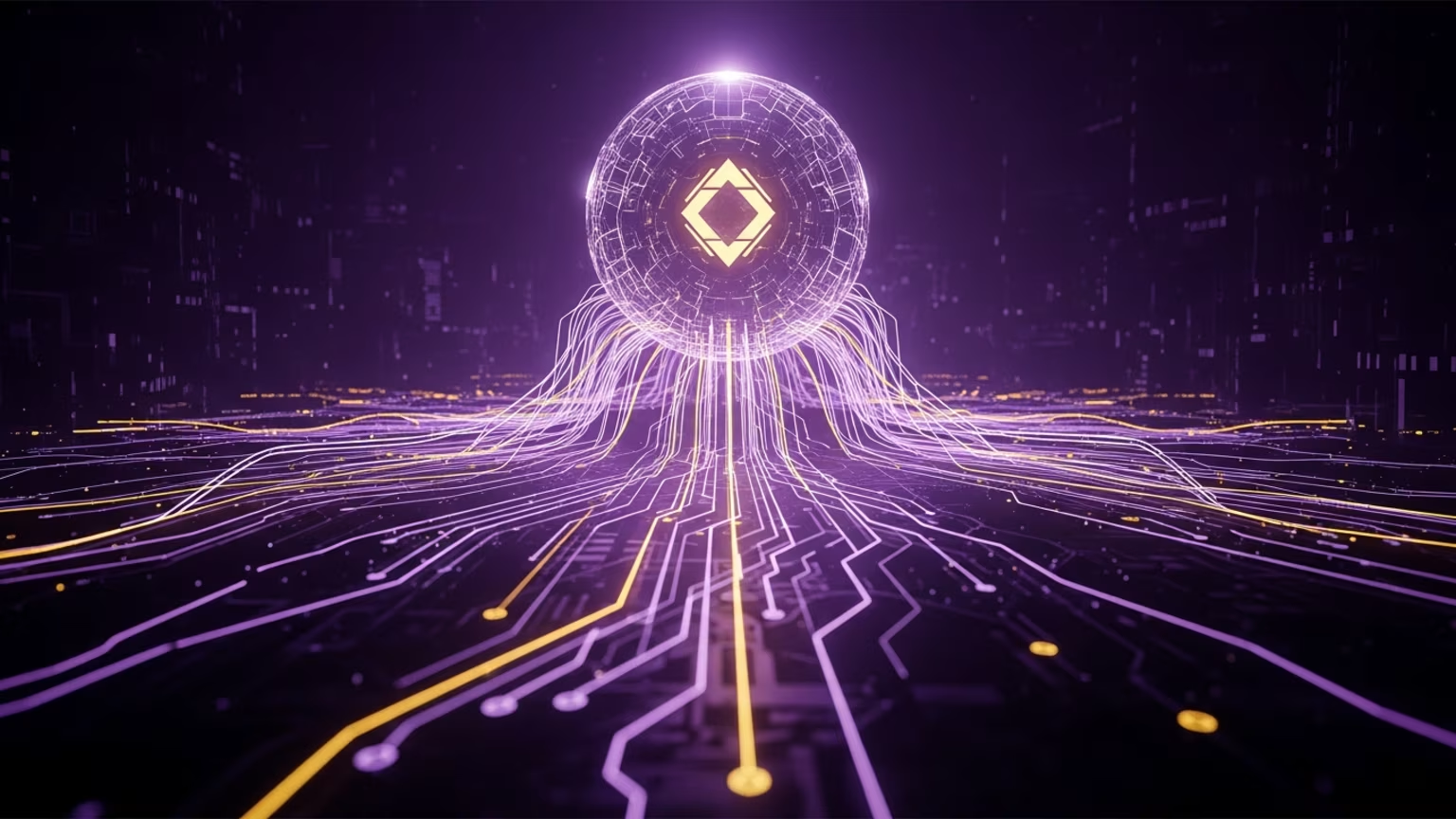
Autonomous Infrastructure
Your guide to the new ChatGPT operating system
Get ready for the ChatGPT OS. A guide to OpenAI's new super assistant, app store, and hardware strategy.

The quick answer
OpenAI is changing ChatGPT from a chatbot into a full operating system. Here is the five-part strategy you need to understand:
- Build a Super Assistant: Create a single AI that manages tasks across your entire digital life, from work to home.
- Launch an App Ecosystem: Allow third-party developers to build and integrate apps directly into the ChatGPT interface, similar to a smartphone app store.
- Develop Custom Hardware: Release new physical devices designed specifically to run the AI operating system.
- Advocate for Platform Neutrality: Push for regulations that would let you choose ChatGPT as the default assistant on any device.
- Enable Proactive AI: Shift from a reactive chatbot to an autonomous assistant that anticipates your needs and takes action.
What is the ChatGPT operating system?
OpenAI is executing a major strategic shift. The plan is to transform ChatGPT from a simple conversational tool into a comprehensive AI operating system. This is not just an upgrade; it's a new foundation for how you interact with technology.
The vision is for ChatGPT to become the main interface for your digital world. Instead of opening multiple apps and websites, you will give instructions to a single, powerful assistant that manages everything for you.
From chatbot to central command
Think of the current ChatGPT as a single application. The new ChatGPT operating system is the platform where all other applications will run. This makes the AI the core layer between you and your software.
This strategy aims to put an AI assistant at the center of your daily tasks. It will manage everything from simple questions to complex, multi-step projects across different programs.
Core capabilities of the AI super assistant
The centerpiece of the ChatGPT operating system is the AI super assistant. Its purpose is to understand you deeply and provide help across every area of your life. The goal is an assistant that works seamlessly at home, at work, and on the go.
This assistant will handle a wide range of functions:
- Answering complex questions with context
- Managing your to-do lists and calendar
- Suggesting recipes based on ingredients you have
- Organizing and summarizing meetings
- Providing companionship or brainstorming help
It’s designed to be a constant, helpful presence that adapts to your needs in real time. This capability is what separates a true AI assistant from a simple chatbot. A well-integrated digital presence becomes more powerful when managed by a central AI.
How the assistant understands your context
The AI super assistant is being built to have situational awareness. It will recognize whether you're in a work meeting, commuting, or relaxing at home. This allows it to adapt its responses and actions appropriately.
For example, it might summarize emails proactively at the start of your workday but suggest a music playlist in the evening. This level of personalization is central to the operating system's value.
Building an app store for AI
A true operating system needs apps. OpenAI is creating a third-party app ecosystem within ChatGPT, just like the App Store for iOS or Google Play for Android. Developers can build and integrate their own applications directly into the chat interface.
OpenAI released an Apps SDK (Software Development Kit) to help developers build on its platform. This gives them a distribution advantage by tapping into ChatGPT's massive user base.
Creating a powerful network effect
This strategy creates a self-reinforcing cycle. A large user base of 800 million weekly active users attracts developers. More developers build more useful apps, which in turn brings even more users to the platform.
This network effect is what made Apple and Google dominant in the mobile OS space. OpenAI is following the same playbook for the AI era. Integrating diverse tools through a single system is key, much like a fully managed website and social media plan unifies your marketing.
The technology behind the new OS
This ambitious vision relies on massive technical advancements. The foundation is built on next-generation models like the upcoming GPT-5 family, which promises superior instruction-following and coding abilities.
OpenAI's AgentKit platform gives developers tools to build production-ready AI agents. These are not just simple bots; they are autonomous systems that can execute complex tasks. This makes the ChatGPT operating system a powerful development environment.
Hardware makes the vision real
Software is only half the equation. OpenAI is making serious moves into hardware to complete its operating system strategy. The company is working with Jony Ive, the famous former Apple designer, to create a new physical AI device.
To power this, OpenAI secured a multi-billion dollar deal for AMD chips. This ensures they have the computational power needed to run their models without relying entirely on competitors. Owning the hardware and software stack gives them total control over the user experience.
OpenAI's strategy for platform dominance
OpenAI is not just building technology; it is actively shaping the market. According to a report from Reuters, this OS strategy positions them to compete directly with giants like Google.
The company is advocating for regulatory changes that would require platforms like iOS and Android to allow users to set ChatGPT as their default AI assistant. If successful, this would place the ChatGPT operating system on billions of devices instantly.
Proactive AI changes the game
A new feature in development, called ChatGPT Pulse, represents a major leap toward autonomous AI. Instead of waiting for your command, Pulse will act proactively. It is designed to anticipate your needs and take initiative.
Imagine your AI assistant scheduling a follow-up meeting after you discuss a project or ordering groceries when it knows you are running low. This shifts the model from a tool you command to a partner that manages tasks for you. For more insights into OpenAI's developer-focused moves, you can read their official OpenAI Blog.
How to prepare your business now
The rise of the ChatGPT operating system will create new opportunities and challenges. Businesses need to start preparing for a future where AI assistants are the primary interface for customers and employees.
Start by experimenting with custom GPTs for your own business processes. Identify repetitive tasks that could be automated by an AI agent. Think about how your products or services could integrate into an AI-first ecosystem.
The companies that succeed will be those that understand how to leverage these new platforms. Building a strong, API-ready digital foundation is the first step. You need a digital presence that is built to rank and designed to convert, ready for the next wave of AI integration.
read more
Similar articles

Get ready for AI local visibility

Use GPT Image 1.5 for marketing content creation
Let’s grow
Start your monthly marketing system today
No guesswork, no back-and-forth. Just one team managing your website, content, and social. Built to bring in traffic and results.




